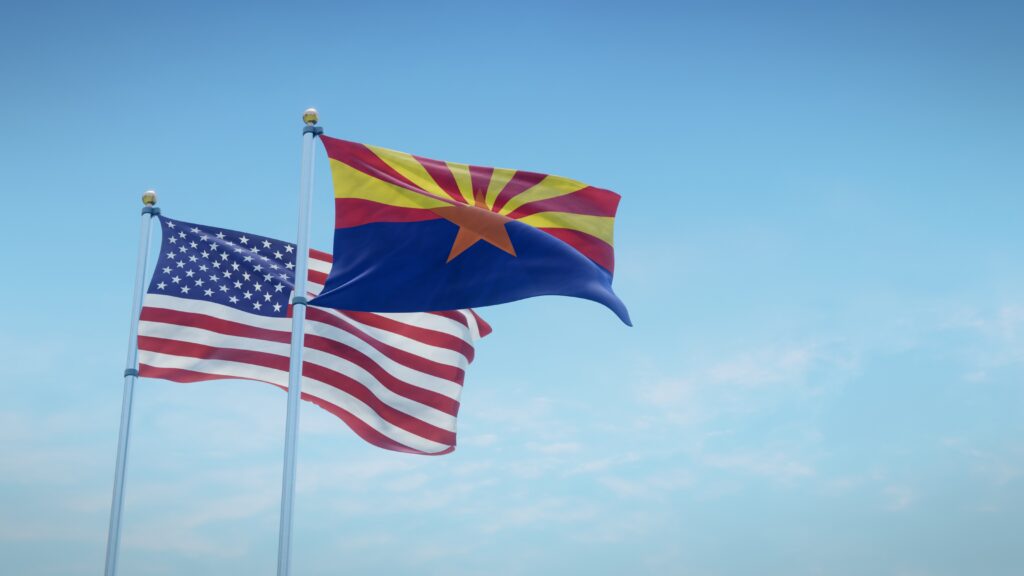Arizona Supreme Court Rejects Republican Challenge to Pro-Voting Executive Order

The Arizona Supreme Court dismissed a right-wing lawsuit on Thursday challenging two 2023 executive orders signed by Gov. Katie Hobbs (D) that expanded voting access across the Grand Canyon State.
In November of 2023, Hobbs signed two executive orders — one that authorized the use of state facilities as voting locations and another to expand voter registration. Arizona Republican Party Chair Gina Swoboda and two voters filed a lawsuit in August challenging both executive orders, alleging that they violate the state’s constitution because only the state legislature and state and local election officials have the authority to decide where voters can register to vote and drop off their ballots.
In the Court’s order dismissing the lawsuit, Chief Justice Ann Scott Timmer wrote the petitioners “have not presented adequate justification for the action to commence in this Court rather than the superior court.”
Timmer also questioned why Swoboda and the other Republican plaintiffs didn’t challenge Hobbs’ executive orders until nearly a year after they were signed. “An earlier challenge would have permitted the Petitioners to secure a final ruling well before the upcoming election,” the order reads.
Original post, Aug. 26:
Republicans in Arizona filed a lawsuit on Aug. 21 challenging two executive orders signed by Gov. Katie Hobbs (D) last year that expand voting access throughout the state.
In November 2023, Hobbs signed two executive orders — EO 23 and EO 25 — that expanded voting access in the Grand Canyon state by authorizing the use of state facilities as voting locations and expanding voter registration. The lawsuit, filed by Arizona Republican Party chair Gina Swoboda and two voters, alleges that both executive orders violate the state’s constitution because only the state legislature and state and local election officials have the authority to decide where voters can register to vote and drop off their ballots.
Swoboda’s lawsuit takes issue with the logistics of Hobbs’ executive order to use state facilities as voting locations, calling out concerns with designating state buildings belonging to the Department of Corrections, Rehabilitation and Reentry and the Department of Juvenile Corrections as official locations for storing ballots. “EO 23 is silent about important issues regarding completed ballots and voting procedures including, for example, where to store completed ballots until they can be sent to the appropriate election officials or keeping a chain-of-custody log for those completed ballots,” the lawsuit reads.
Rather than filing the lawsuit in a lower court, Swoboda’s lawyers filed directly to the Arizona Supreme Court, because “this case involves pure legal questions of statewide importance that hinge on this Court’s interpretation of the Arizona Constitution and statutes that have immediate ramifications for the impending 2024 elections throughout the state.” In filing directly to the state’s highest court, they’re asking for the justices to step in and find the executive orders unconstitutional and block Hobbs and her office from taking any further action to expand voter registration and ballot drop-off sites.
Swoboda’s lawsuit is the latest in a right-wing legal assault on Arizona’s voting procedures and practices. According to Democracy Docket’s litigation tracker, there are currently 11 active anti-voting cases in Arizona, which includes challenges to the state’s election procedures manual, voter roll maintenance and election administration procedures.